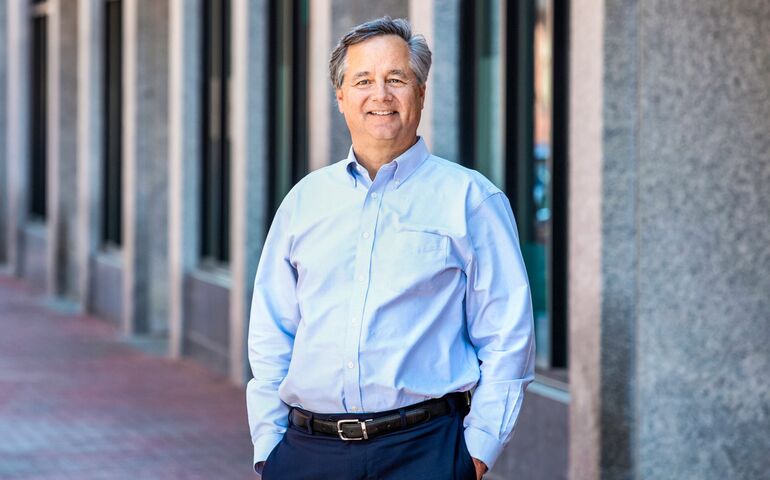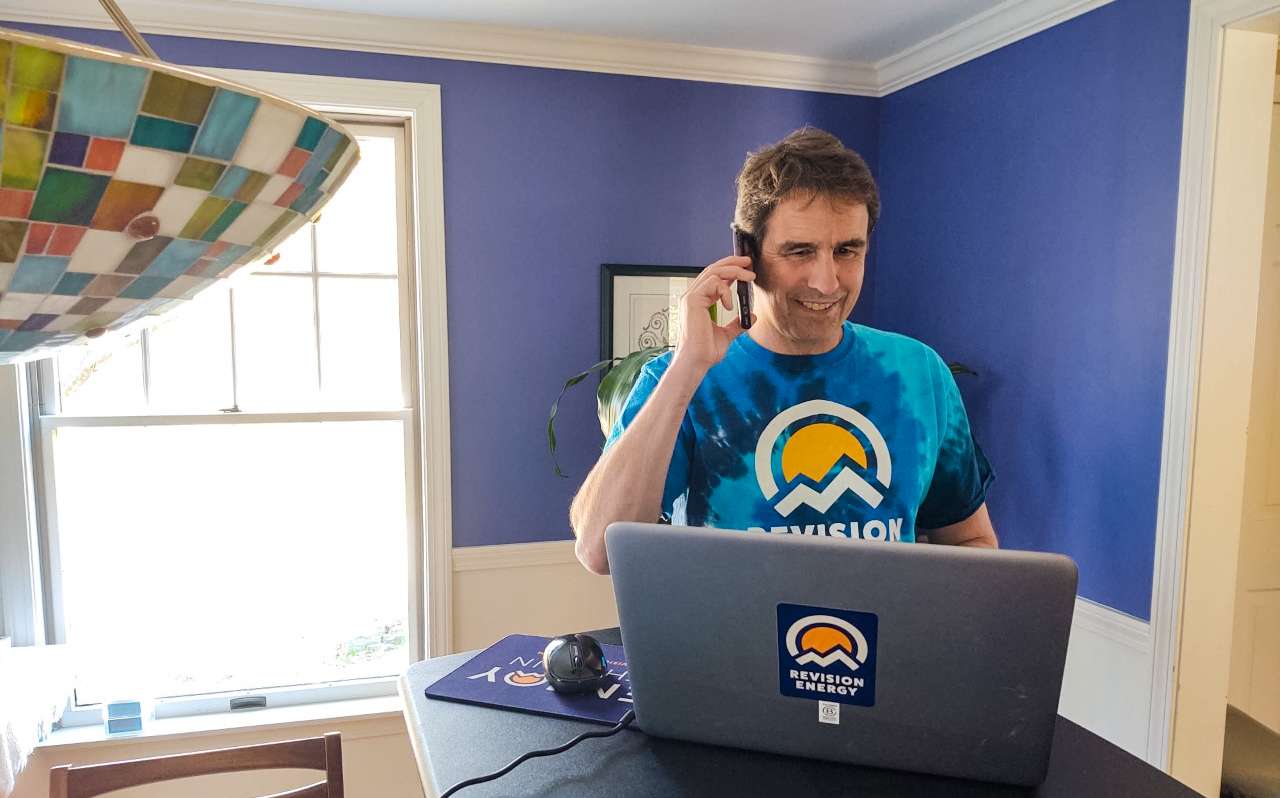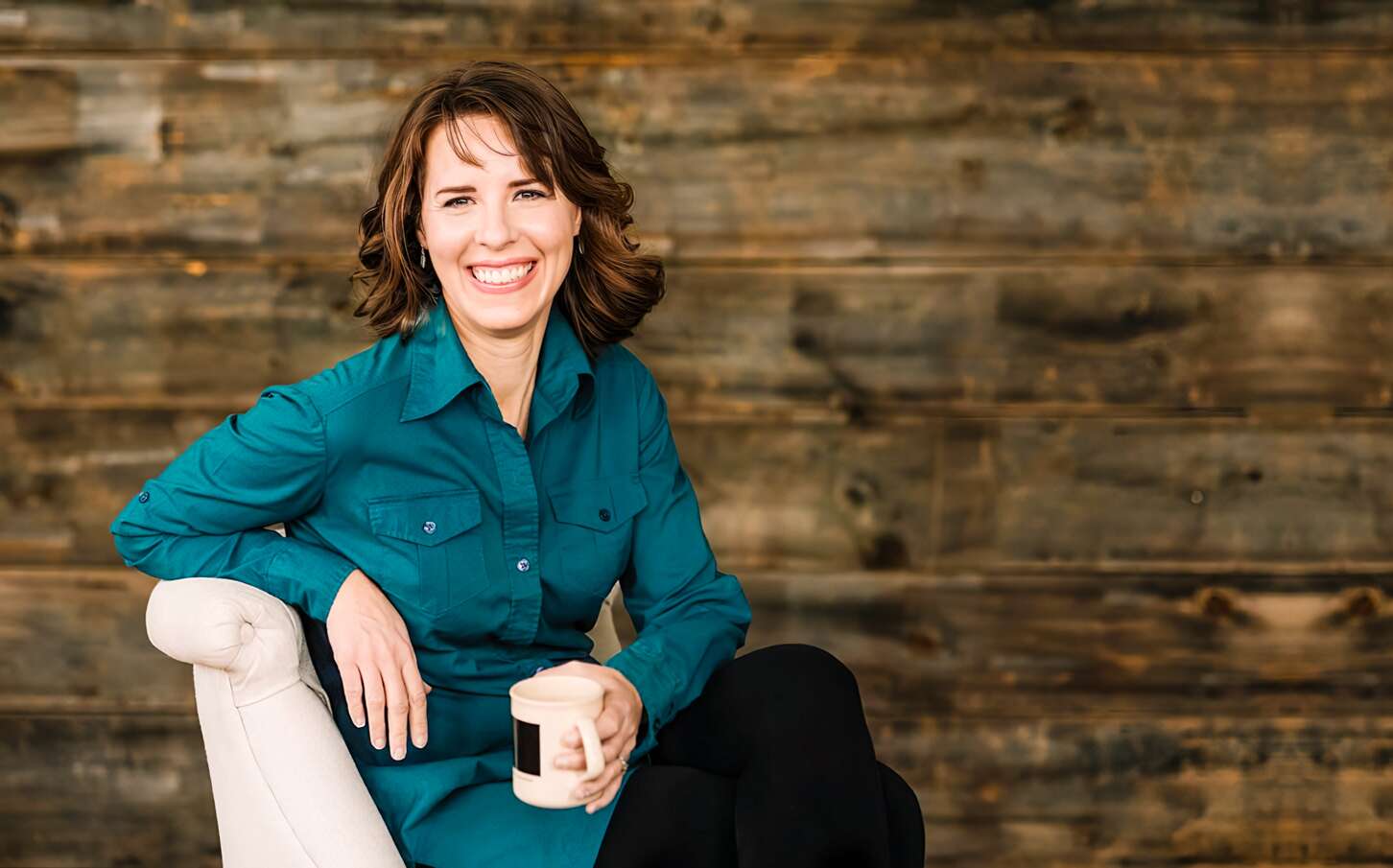
Be good with B Corp: More companies are undergoing rigorous certification for accountability
 Photo / Tim Greenway
Todd Bachelder, Mascoma Bank’s Portland-based Maine market manager, says B Corp certification resonates especially with younger generations.
Photo / Tim Greenway
Todd Bachelder, Mascoma Bank’s Portland-based Maine market manager, says B Corp certification resonates especially with younger generations.
Todd Bachelder recalls an eye-opening moment about the B Corporation movement.
He was about to take a position with Mascoma Bank as senior vice president and its Portland-based Maine market manager.
His adult daughters asked why he chose Mascoma. He mentioned several factors. Among them? The bank was a certified B Corp. “Right away, the two of them went, ‘Hey, that’s cool!’” he recalls.
A short time later, he met a group of exchange students at a local college.
“They asked what I did. I told them I was a banker and I mentioned B Corp,” he relates. “Right away, exact same reaction. It really resonates with the younger generation.”
Third-party validation
B Corporations are for-profit companies certified by the Berwyn, Pa.-based nonprofit B Lab to meet standards for social and environmental performance, accountability and transparency.
A growing number of companies are engaged in the movement and more stakeholders than ever — employers, consumers, investors, business partners — look for that symbol.
“It’s a third-party validation that you’re really doing what you say you’re doing,” says Bachelder.
Rob Tod, founder of Portland-based Allagash Brewing Co., says the burden is also on the company to maintain the designation.
“The challenge of being a B Corp is also the reason why the designation carries weight. It’s not easy to maintain,” says Tod. Allagash became a B Corporation in 2019. “We’re in the process of re-certifying our business, which involves trying to quantify all of the good practices we have across our entire operation — and even involves the vendors we work with.”
New way of business
Eleven Maine-based companies are certified and more have started the process. Others, like Mascoma Bank, are headquartered out-of-state but have a Maine presence.
The certifying body, B Lab, was founded in 2006 with a vision of a new way of doing business. Unlike traditional corporations, B Corps are legally required to consider their impact on stakeholders, including workers, suppliers, community, consumers and the environment.
The first 81 B Corps were certified in 2007. Today, there are 5,000 B Corps spanning 79 countries, 154 industries and over 400,000 workers, according to B Lab.
Companies undertake a rigorous “B Impact Assessment” that considers factors ranging from employee benefits and charitable giving to supply chain practices and input materials. The factors are designed to meet standards of performance, accountability and transparency.
The assessment is time-consuming, detailed and requires paperwork and periodic recertification to substantiate claims in five categories: environment, workers, customers, community and governance.
Certification offers access to the B Lab logo, services, and community of practice. Recertification is expected every three years. Annual fees range from $1,000 to $50,000 per year, based on revenues.
More than profits
As Bachelder says, the designation is particularly meaningful to younger generations.
“They want to know they’re working for companies that are doing more than focusing on shareholders and near-term profits,” says Bachelder. “It means something to folks that we’ve committed on an ongoing basis to lessening our environmental impact, to aggressively taking DEI steps, to treating our employees well.”
Certification signals company values, says Fiona Wilson, who founded the University of New Hampshire’s B Impact Clinic. A Freeport resident, Wilson is the director of UNH’s Sustainability Institute. She’s seen a growing interest in the B Corp movement.

“A lot of companies today, in response to consumer demand, are making statements about their commitment to climate or DEI or employees,” she says. “But what does that actually mean? What I like about the B impact assessment is it makes that very granular and actionable.”
Employee attraction
Benefits of certification include institutionalization of a company’s commitment to continuous improvement and a focus on the issues that drive the assessment.
A decade ago, Margo Walsh was searching for mission-driven companies like her own. MaineWorks is a Portland employment company that helps previously incarcerated people and people struggling with substance abuse disorders get back on their feet through steady jobs. She came across B Lab and loved the idea of a “new form of capitalism, using business as a force for good.” In 2013, MaineWorks was the first Maine company to become a B Corp.
For Great Works Internet, which became a B Corp in 2020, it’s about intentionality, says Kerem Durdag, the Biddeford broadband carrier’s COO and president.
“We made the decision, even before we were a B Corp, that we are part and parcel of the community,” Durdag says. “We are beholden to the community and want to do things for the community, with the community.”
Companies say it’s an excellent recruitment and retention tool and a quick and easy way to communicate company values.
For solar company ReVision Energy, certified in 2015, the ability to attract and retain employees, particularly younger workers, has been enhanced.
“Being a certified B Corp has helped us attract great people and keep them here and keep them happy,” says Phil Coupe, ReVision’s co-founder.

Another advantage, he adds, is the growing number of consumers gradually becoming aware of the concept.
“Most people who learn what it means to be a B Corp want to spend their money with those types of companies,” Coupe says. “When we’re competing for clients, B Corp certification is a powerful differentiator.”
“This is absolutely a great marketing tool, and helps us attract teammates who are passionate about working for a mission-driven company that puts people before profits,” says Meaghan Dillon, marketing director for Portland-based Luke’s Lobster, which became a B Corp in 2018. “It’s also allowed us to find a wonderful network of other like-minded B Corps to partner with, collaborate with, or just learn from.”
Report card
For Bob Garver, co-owner of Wicked Joe Organic Coffees and Wicked Leaf Organic Teas in Topsham, the assessment provides a useful report card on his company’s practices.
“I felt like this would be a good opportunity to find out whether we were doing as good a job as we think we are,” Garver says. “We wanted to be a mission-based company long before B Corp started. We’ve always striven to be better. This allows us in some ways to quantify that.”
Whether companies choose to complete the process or not, the impact assessment “is incredibly valuable,” says Wilson. “It’s almost like a free management consulting resource. It’s a useful framework that allows companies to basically hold up a mirror to its practices, to create an objective score for itself and revisit that score to make continual improvement.”
Rigorous process
Navigating the assessment is rigorous and complex, requiring countless hours of communication, paperwork and auditing, says Dillon.
“The thing that makes B Corp certification powerful is that it really isn’t any one thing that qualifies you as a business,” say Tod. “It’s a whole array of different metrics across the entirety of our business. And a big part of the certification is that it gives you concrete ideas about how to improve.”
Says Coupe, “You’re really going through every aspect of your business with a very fine-tooth comb.”
The metrics and practices depend on the company. Notable initiatives at ReVision include 100% employee ownership and helping to fund solar in low-income communities. Allagash committed to buy over a million pounds of Maine-grown grain per year, increase brewing efficiencies, use less water and recycle waste. Luke’s mission includes transparent pricing to fishermen, preferred purchasing from underrepresented groups and sustainable seafood sourcing. Androscoggin Bank, certified in 2021, has committed to employee-led workgroups focused on topics like giving, volunteerism, internal events, wellbeing and environmental stewardship. Common elements include transparent governance, employee empowerment and sustainable practices.
Complex by design
The complexity is by design, says Tara Jenkins, founder of Conscious Revolution, a consultancy that works with CEOs and founders to build conscious businesses. It’s the latest Maine-based B Corp.
“It pushes you to the next level of your organization’s development,” Jenkins says of the assessment. “It’s designed to go deep, to change the way the business ecosystem works.”

That complexity is why Wilson founded the B Impact Clinic.
“Four or five years ago, I saw two needs. One was a growing interest by companies wanting to explore B Corps certification,” Wilson says. “Many companies, particularly smaller and medium size companies, don’t have the time or the in-house expertise to tackle the B impact assessment.”
Companies must earn at least 80 of 200 points in the assessment for initial certification, and must gain points for recertification.
“It’s a rigorous process and a steep learning curve,” she says.
Wilson also noticed among college students a growing dissatisfaction with “business as usual” among companies focused simply on maximizing profits.
“There’s a hunger in this generation,” she says. “They want to work for and buy from and invest in companies they think are aligned with their values, things like climate change and diversity, equity and inclusion. They want to help be part of a movement for a different kind of business. So the idea of B Corps really resonates with this generation.”
The impact clinic was formed to meet both sides of the equation. The clinic trains students in the assessment and supports them with skills around project management and client communication. Students then assist companies through the assessments for certification or recertification.
The B Corp concept is also a great fit with Maine, she says.
“I think people who run businesses here are naturally inclined toward thinking about the environment, because we live in such beautiful state and so much of our economy is derived from the natural environment,” she says. “And we live in a state where people care about people.”
The companies have met regularly since 2019 to discuss topics such as best practices and outreach about the movement to consumers, potential employees and business partners. Becky McKinnell, founder and CEO of Portland digital marketing and branding agency iBec Creative, put together a Maine B Corps website. Her company has nearly completed the certification process.
“It’s a contagious energy,” McKinnell says. “I keep hearing of more companies that are going through the certification process. People want to get involved.”










0 Comments